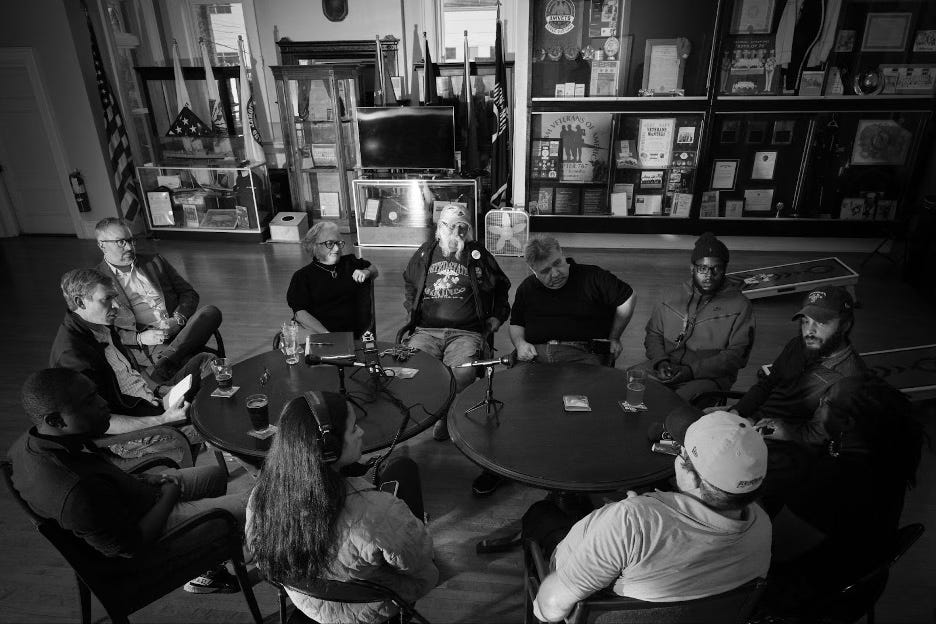What I learned reporting on this election
Insights from conversations with around 300 people I've interviewed this year
Donald Trump won the presidential election, as you’ve no doubt heard. I contributed to The Wall Street Journal’s post-election coverage, including this story on young men breaking sharply for Trump and this article on the erosion of Democratic support in suburbs.
In New York, Trump won populous Nassau County by around four points after Biden carried it by 9 points in 2020. The Republican from Queens won Suffolk County by 11 points after the parties had essentially tied there four years ago. That contributed to the Vice President Kamala Harris’s greatly narrowed, 12-point win in the Empire State, down from a 23-point Democratic win in 2020.
I can’t say that I was surprised by the result, having spent the last year talking with around 300 voters in states across the country. I wrote this column before the polls closed about what I learned speaking to people for two podcast series this year: “Chasing the Vote,”in which I went to six swing states and “Chasing the Base,” which focused on the GOP nominating contest.
Along with audio producers Jess Jupiter, Ariana Aspuru and a cadre of local photographers, I spoke to people in their living rooms, at small businesses and in government offices. We stopped voters outside of grocery stores and joined them for brunch after church. We approached strangers at the Nevada State Fair and the Florida Strawberry Festival, a bowling alley in Wisconsin and a Halloween parade in Pennsylvania.
Here's what I learned along the way:
++ A large number of people had lost faith in the government as a force to solve what they perceive as the biggest problems confronting the nation and their own lives. Gallup polling recently found just 22% of Americans are satisfied with the country's direction. That number hasn’t been above 50% in two decades.
++ While I met plenty of people who were passionate about either Trump or Harris, I encountered more who put themselves into one of their camps while expressing clear reservations about the candidate.
++ As such, many voters told me they felt trapped in a choice where they didn’t like either option. They pined for another figure who would bring greater change. There wasn’t agreement on who would do that, or how.
++ This explains why so many voters viewed this election with dread. They're afraid that their candidate would fall short, or they're just exasperated with the system. In a pre-election WSJ poll, 87% of voters said they thought America would suffer permanent damage if their candidate lost.
++ My biggest takeaway is that Republicans and Democrats are more reasonable than they make each other out to be. It is easy to follow the lead of candidates or party figures into thinking that members of the other team believe and embody all the worst stuff in the attack ads.
++ There are some strident activists. But more often, people would react mildly when presented with their positions and stay focused on their lives. Most folks offered reasonable rationales for their votes. I learned not to assume the worst about anyone.
It helped me find the best.
THE QUESTION: How are you feeling about the election? Which result surprised you most?
Have an answer? Drop me a line at jimmy.vielkind@gmail.com. Or just write with thoughts, feedback or to say hi.
THE LAST ANSWER: Yuengling bills itself as coming from America’s oldest brewery.



